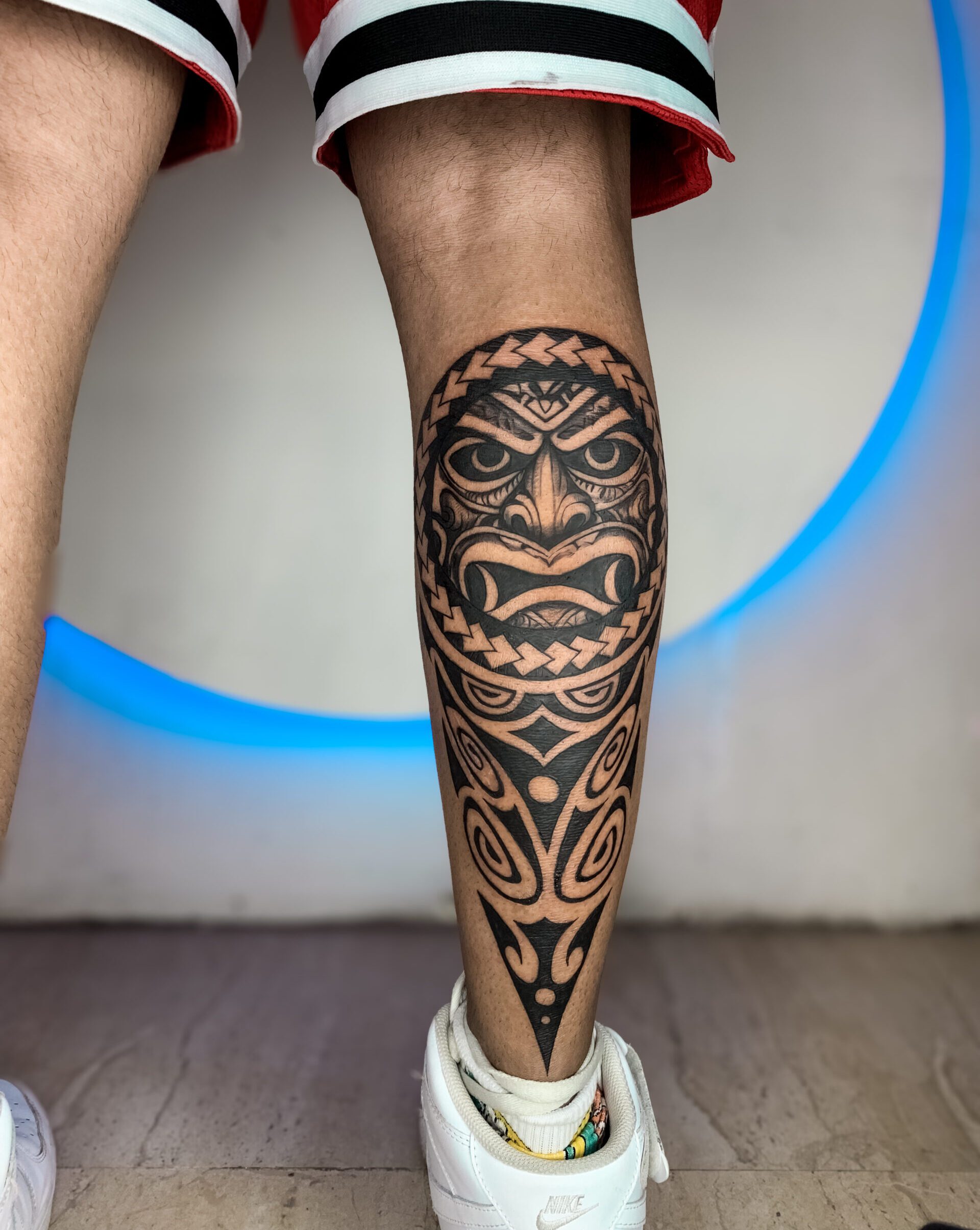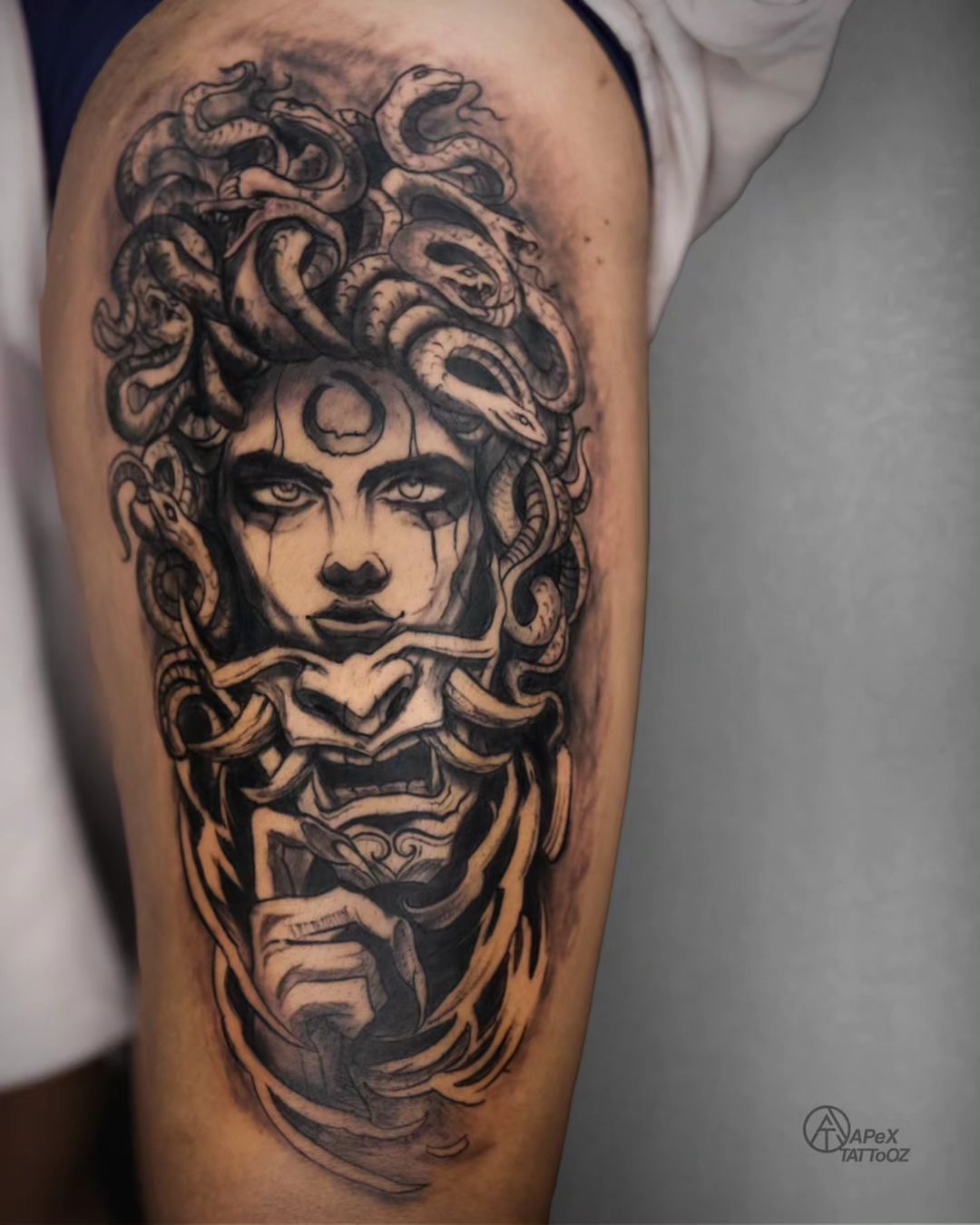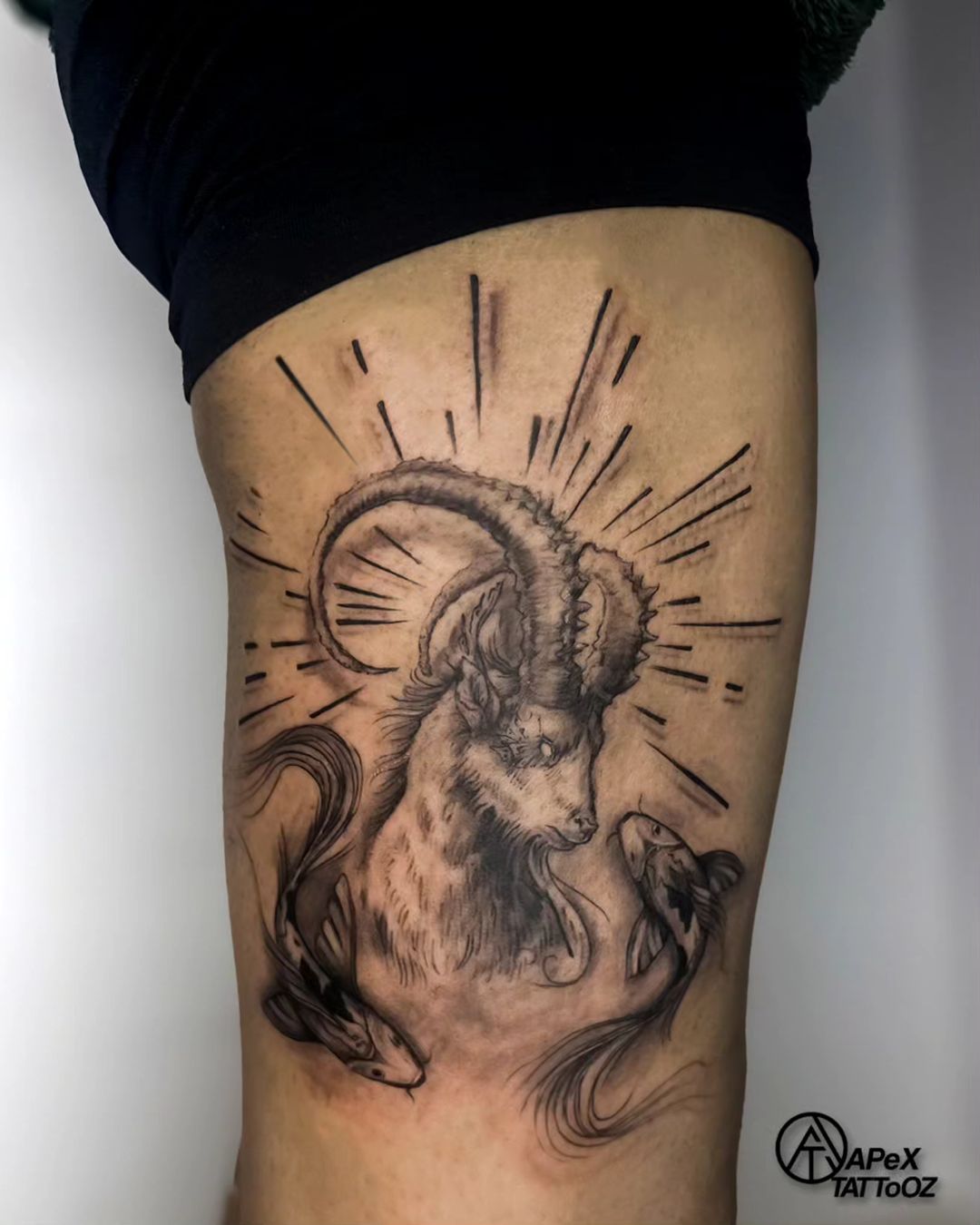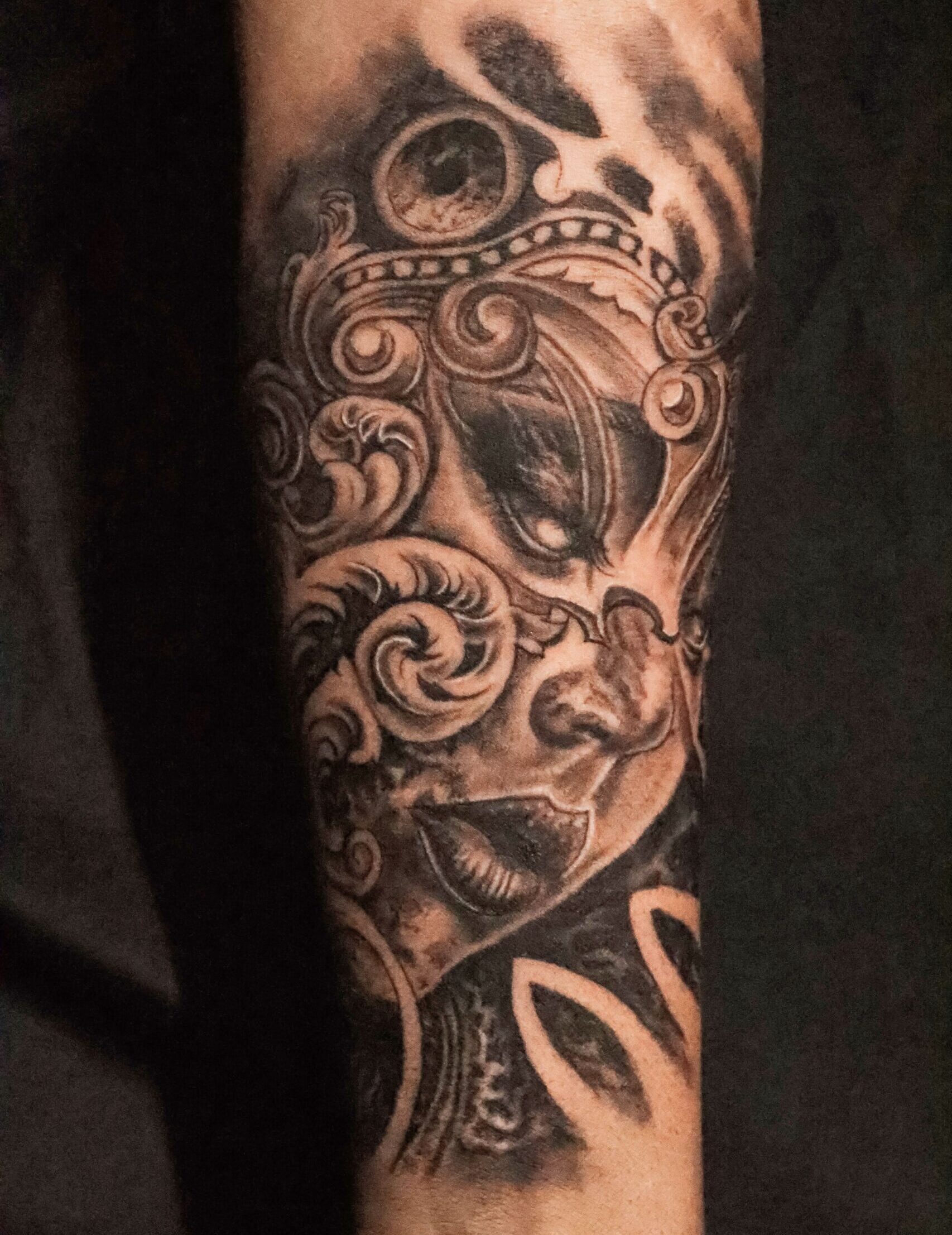Getting a tattoo is a big decision — especially if you’re living with diabetes. At Apex Tattooz, one of Delhi’s most trusted tattoo studios, we get asked this question all the time: “Can diabetic people get tattoos?”
The short answer? Yes, diabetic people can get tattoos — with the right precautions, planning, and aftercare.
This guide breaks down everything you need to know — the pros, cons, risks, safety tips, and why consulting a professional studio like Apex Tattooz matters more than ever if you have diabetes.
Understanding Diabetes & Tattoos
Diabetes, whether Type 1 or Type 2, affects how your body regulates blood sugar. But it also affects your immune system, blood circulation, and wound healing — all of which are critical when getting a tattoo.
Here’s how diabetes can impact the tattooing process:
- Slower healing — High blood sugar can delay healing and increase the risk of infections
- Risk of infection — Diabetics are more prone to skin infections and complications
- Skin sensitivity — Diabetes may cause dry or sensitive skin, affecting ink placement and healing
That said, well-controlled diabetes typically means you can safely get a tattoo, especially when working with a professional studio that follows strict hygiene protocols — like Apex Tattooz.
Is It Safe for Diabetics to Get Tattooed?
If your blood sugar is well-managed, you’re not dealing with complications like neuropathy, and your doctor gives you the green light — tattoos can be perfectly safe.
However, you should avoid tattooing in areas with poor circulation, like:
- Lower legs or ankles
- Feet (especially if you have diabetic neuropathy)
- Hands or fingers (if blood flow is restricted)
At Apex Tattooz, we offer consultations where we discuss your condition, medications, and ideal placement — with zero judgment and total privacy.
If you’re unsure, visit our Flash Tattoos section for low-risk, small designs to start with.
Best Tattoo Placement for Diabetics
If you have diabetes, consider tattooing areas where blood circulation is healthy and the skin is less prone to injury:
- Upper arms
- Shoulders
- Back
- Thighs
These areas are safer because they heal better and carry less risk of complications. Plus, they’re great for everything from detailed designs to bold statement pieces.
Pro Tip: Avoid tattooing over insulin injection sites or CGM sensors, as these areas are more sensitive and prone to scarring or uneven healing.
Signs You Should Wait Before Getting Inked
Hold off on tattooing if you’re experiencing any of the following:
- Blood sugar is consistently high or uncontrolled
- You’re recovering from an illness or surgery
- You have open wounds or infections
- You feel fatigued or dizzy often
Your body needs strength and immune support to heal a tattoo properly. When in doubt, wait until your health stabilizes or talk to our team for a safer timeline.
Real Stories from Our Diabetic Clients
We’ve proudly tattooed several clients managing diabetes — here are a few fictionalized experiences based on real themes:
“I was nervous at first, but Apex Tattooz explained everything. I got a small lotus on my shoulder, and it healed perfectly — no issues!”
— Meenal, South Delhi
“They checked my sugar level before the session and made sure I felt comfortable. I love my feather tattoo — and the aftercare instructions were spot on.”
— Aman, Gurgaon
Want to see what’s possible? Browse our Tattoo Gallery for inspiration.
Let me know and I’ll continue with Part 2 — focusing on pros and cons, hygiene, artist selection, and tattoo aftercare for diabetics.
Pros and Cons of Getting a Tattoo with Diabetes
Now that we’ve covered the basics of tattooing with diabetes, let’s break down the benefits and risks of getting inked when you’re living with this condition.
Pros: Why Diabetic People Choose to Get Tattoos
- Self-expression: Just like anyone else, people with diabetes want to express themselves with meaningful art
- Empowerment: A tattoo can mark a personal victory — like overcoming diabetic complications, achieving better health, or just feeling in control
- Medical identification: Some clients get medical alert tattoos (“Type 1 Diabetic”) instead of wearing ID bracelets
- Emotional healing: Tattoos can serve as reminders of strength, discipline, or transformation
At Apex Tattooz, we’ve seen clients use their tattoos as milestones, motivators, and even memorials. If your diabetes is managed, there’s nothing stopping you from doing the same.
Cons: Risks of Tattooing with Diabetes
- Delayed healing: Diabetics often take longer to heal from cuts and wounds, which includes tattoos
- Higher infection risk: Poor glucose control can impair the immune system
- Complication areas: Tattoos on feet, shins, or hands might not heal properly
- Potential ink rejection: Rare, but in some sensitive skins, tattoo ink might not hold evenly
That’s why it’s crucial to work with a studio that prioritizes safety and doesn’t cut corners. At Apex, we use sterilized, single-use equipment, FDA-approved inks, and detailed aftercare planning.
Learn more about how we tattoo safely in our Tattoo Services section.
Tattoo Hygiene Matters More If You’re Diabetic
For people living with diabetes, the number one priority during tattooing is hygiene. A dirty needle or unclean setup can lead to infections — which diabetics are more susceptible to.
What We Do at Apex Tattooz:
- 100% disposable needle and tube sets
- Sanitized surfaces and gloves changed before each client
- Medical-grade disinfectants and wraps
- We NEVER re-use ink caps or stencils
These aren’t extras — this is the standard. When you book a tattoo with us, you’re trusting professionals who take your health seriously.
Aftercare for Diabetics: Heal Smart
If you’re diabetic, your aftercare game has to be on point. Here’s what we recommend:
1. Monitor Blood Sugar Before & After the Tattoo
Stay in a stable range (preferably 80-130 mg/dL fasting) to avoid complications.
2. Avoid Infection
Use the aftercare balm we provide, wash the tattoo gently, and avoid touching it with unclean hands.
3. Stay Hydrated & Eat Well
Healing demands energy and hydration. Don’t skip meals or insulin (if prescribed) post-session.
4. Avoid These:
- Soaking in bathtubs, pools, or rivers
- Exposing tattoo to direct sunlight for long periods
- Scratching or picking at scabs
Our Tattoo Aftercare guide goes into even more detail — follow it closely and you’ll heal beautifully, just like any other client.
When to Call Your Doctor or Tattoo Artist
Look out for the following signs of trouble and contact your tattoo artist or doctor if you notice:
- Redness or swelling that worsens after 48 hours
- Yellow discharge or extreme itchiness
- Fever or chills
- Unusual pain or discoloration around the tattoo site
We’re always available at Apex to help with healing issues — just reach out to us or walk in for a check-up.
Ready for Part 3? It’ll include:
- When NOT to get tattooed if you’re diabetic
- What to ask your artist
- Myths vs facts
- Final verdict for diabetic clients
When Should Diabetic People Avoid Getting a Tattoo?
Even if tattoos are generally safe for diabetic individuals, there are certain situations when you should hold off. Your body needs to be in its best healing state before taking on the stress of a tattoo.
Avoid getting tattooed if:
- Your blood sugar is consistently above 200 mg/dL
- You have diabetic neuropathy or poor circulation (especially in feet or legs)
- You are currently ill or recovering from surgery
- You have an open wound, rash, or skin allergy
- You are on blood thinners or antibiotics (check with your doctor)
At Apex Tattooz, we always prioritize your health. If you walk in for a consultation and we feel you need to wait, we’ll tell you honestly — no pressure, no sales pitch.
Questions You Should Ask Your Tattoo Artist
When getting a tattoo as a diabetic, communication is key. Here’s what you should ask during your consultation:
- Do you have experience working with diabetic clients?
- What hygiene protocols do you follow?
- How do you ensure safe healing?
- What should I watch out for during aftercare?
- Are there placement areas you’d recommend or avoid?
We answer all these questions and more during our free consultation sessions — in person, by call, or even DM on Instagram.
Myths vs. Facts: Tattoos & Diabetes
Myth 1: Diabetics should never get tattoos
False. Many diabetics live with ink beautifully. The key is to control sugar, choose a safe studio, and follow aftercare.
Myth 2: Tattoos always get infected if you’re diabetic
Wrong. Infections can happen to anyone — diabetic or not — if you ignore hygiene or aftercare. That’s why you need pros like Apex Tattooz.
Myth 3: Tattoos won’t heal on diabetic skin
False. With good circulation, blood sugar control, and proper aftercare, healing is smooth and successful.
Myth 4: You can’t tattoo near insulin injection sites
Partially true. It’s not recommended, as these areas are sensitive and repeatedly disturbed. Let’s find a safer spot that still looks amazing.
Final Verdict – Should Diabetics Get Tattooed?
Yes — if you’re managing your health, working with a professional studio, and willing to follow aftercare properly.
We believe tattoos should be for everyone, regardless of medical conditions — as long as it’s done safely, mindfully, and with proper care. Diabetes doesn’t disqualify you from self-expression. It simply means you need to be a little more prepared.
At Apex Tattooz, we’ve built a reputation for being welcoming, honest, and fully transparent — especially with clients who need extra care. Whether it’s your first tattoo or your fifth, we’ll guide you every step of the way.
Follow our real tattoo journey:
- Instagram – @apextattooz_newdelhi
- Threads – @apextattooz_newdelhi
- YouTube – @madyy2283
- Facebook – Apex Tattooz
So, can diabetic people get tattoos? Yes — with planning, awareness, and the right artist.
Apex Tattooz – Where Real Ink Meets Real Care.








